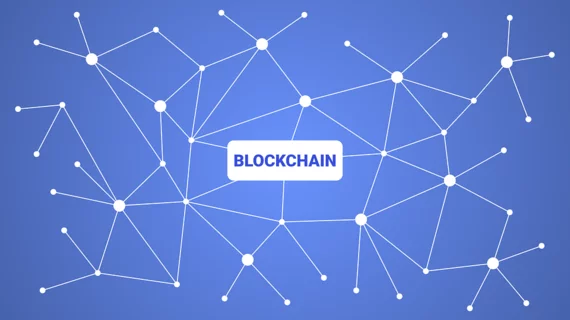5 ways blockchain could transform healthcare
Healthcare technology moves at lightning speed, with AI and machine learning at the forefront of innovation. Right alongside these new discoveries is blockchain technology, which was popularized through the rise of cryptocurrency, and is seeing its own emergence in healthcare.
Blockchain technology is a digital ledger that can record and store information about transactions, with implications for nearly every industry.
Several major healthcare companies recently teamed up to design and create a blockchain network to boost interoperability and transparency in the sector. However, the implications of the technology go much further and are just beginning to be realized in the healthcare space, according to Sanjay Das, founder and managing director of SD Global, as cited by Healthcare Innovation.
Here are five ways blockchain could make a transformative impact on the healthcare industry:
Drug traceability
With blockchain, drug manufacturers can have increased visibility into the life cycle of drugs, as they are recorded. This gives manufacturers more opportunity to avoid doing business with organizations that improperly use or sell drugs, according to Das. In fact, fake drugs are a widespread problem across the globe, making up between 10% and 30% of drugs in developing countries. The cost of dealing with fake drugs is around $200 billion annually, Das wrote.
Clinical trials
Blockchain is already expected to have a significant impact when it comes to data sharing, and clinical trials could also benefit from the technology by reducing errors in the data sharing, according to Das. Blockchain can allow clinical trial information to be shared securely, with limited permission to doctors and researchers to view and edit the information of the trial.
“Since all the information about the clinical trial gets stored on the blockchain, and not in a physical or computer format, it eliminates the chances of blunders and unsanctioned access,” Das wrote.
Patient data
Access to patient data is a problem across the healthcare system that could be improved through blockchain, which would move data from siloed, centralized systems within multiple practices to a decentralized system. This would streamline the sharing of patient data across healthcare providers, with a transparent storage process that would reduce healthcare data breaches.
Interoperability
In addition to streamlined data sharing, blockchain technology can help solve one of the biggest problems plaguing the healthcare space: interoperability. Just as healthcare providers have issues sharing patient data, they also face challenges when it comes to accurate health data. Even within a single healthcare system, patient matching with medical records can be inaccurate. However, a health information exchange system enabled by blockchain would bring all information together across the fragmented systems. The efficiencies realized through a “countrywide blockchain network for electronic medical records” could also benefit patient care and health outcomes, according to Das.
Information security
By design, blockchain is intended to be a secure through cryptography and linked blocks of data that could help reduce or eliminate costly healthcare data breaches. A blockchain network of health information would be better protected while allowing members to view and share, and only authorized people to edit.

